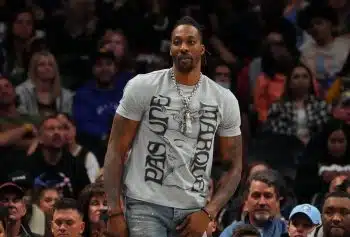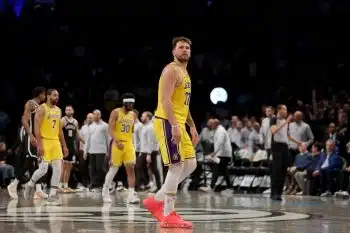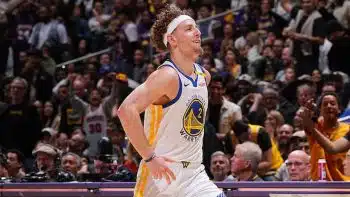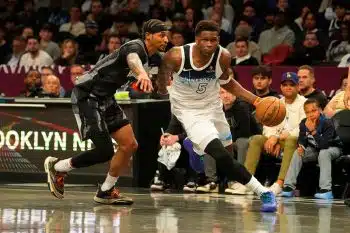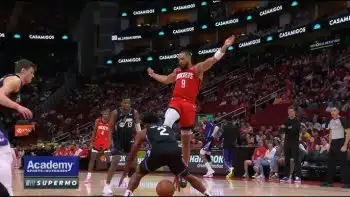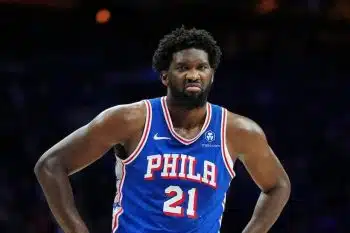NBA
NBA Daily: Gordon Hayward’s Short-Lived But Crucial Return
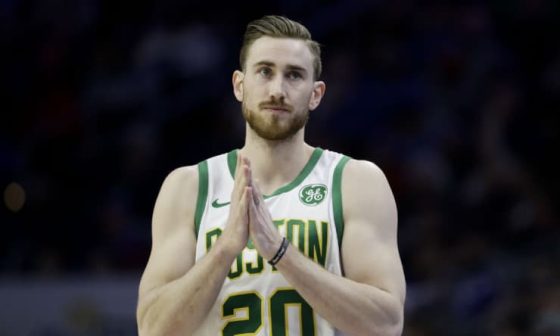
Gordon Hayward’s career was flapping in the breeze just two seasons ago. A devastating leg injury left many questioning whether he would ever be the star player that shined with the Utah Jazz again.
Since, Hayward’s journey toward a complete recovery had been an arduous one. But, to start the 2019-20 season, it seemed as if the Boston Celtics’ patience was finally paying off.
Then, it happened.
With less than two minutes left before halftime against the San Antonio Spurs, Hayward was blindsided by LaMarcus Aldridge on a screen. He left the game and, later, x-rays confirmed that he had sustained a fracture in his left hand and was set to miss time.
Through their first eight games, Hayward was one of Boston’s best and just one of three Celtics to average more than 20 points per game this season. He had led the team in field goal percentage (56.4 percent) while also shooting an impressive 44.4 percent from beyond the arc, by far his shooting from distance since his rookie season.
His 39-point performance against the Cleveland Cavaliers, a near triple-double that tied a career-best scoring mark, in the very same Quicken Loans Arena where he suffered that gruesome leg injury was almost a signal: Hayward was back. He was dominant in every facet of the game, as he also finished with 7 rebounds, 8 assists and shot 16-for-16 inside the three-point line.
To provide some context, the only other player in NBA history to match that stat line was none other than Wilt Chamberlain.
After the game, the 10-year veteran said that the injury is gone from his mind; a crucial hurdle in his return to the fromer-Hayward. Without nagging, troublesome thoughts at the forefront of his brain, Hayward’s instincts with the ball in his hands proved better than ever, while the aggression he often displayed in Utah that pushed him into elite company had returned.
Heading into their duel with the Spurs, Hayward had averaged 20.3 points per game, a career mark second to his last season with the Jazz. Likewise, Hayward’s rebound (7.9) and assist (4.6) numbers were the best or near the best of his career.
And his rejuvenation couldn’t have come at a better time for Boston; with Jaylen Brown out with an illness and Enes Kanter nursing a leg injury, Hayward’s contributions were necessary for the Celtics to start the season the way they have. He isn’t the most athletic body, but Hayward knows the game well and understands how to utilize his tools on both ends of the floor, stepping up and filling in quite nicely on either end of the floor
That, coupled with the context of Hayward’s last two seasons, has only made this most recent setback all the more awful. The former All-Star appeared well on his way to a second appearance in the mid-season classic.
Meanwhile, Boston, after a season that can only be described as confusing and disappointing, was back to playing fun, winning basketball.
Even without Hayward, the Celtics made quick work of the Spurs. But, going forward, they are going to seriously miss their star on the wing. While, in the midst of a seven-game win streak, they sit atop of the Eastern Conference, Boston still has to deal with the Philadelphia 76ers, Milwaukee Bucks, Miami HEAT and other potential top-dogs in the conference.
For however brief a time he was back, Hayward was back to his old ways; he was aggressive on offense, stout on defense and put the team in a position to win every possession and every game. While his injury robbed us, the viewer, of his talent for the last two seasons, he overcame some major obstacles and was better for it.
With that Hayward, a key piece to the team’s Larry O’Brien puzzle and the same player that Danny Ainge and Co. inked to a four-year, max salary, the Celtics could go toe-to-toe with any of those aforementioned teams, or any teams in the NBA en route to an NBA Finals bid, for that matter.
But now, with him sidelined once again, Boston is certainly in for their share of struggles.
In a post on his website back in September, Hayward gushed about the upcoming season. And, amidst the chat of his return from injury and his prior relationship with Kemba Walker, his message was clear: “I’m ready to be the player I came here to be.”
Hayward will return, his injury not season-ending. And, while it may seem cruel or unfair, this minor setback is just that: a minor setback, a pitstop near the end of Hayward’s journey.
And, despite that setback, Hayward, if he hadn’t already, is well on his way to proving that he is, in fact, the “player [he] came here to be” (or better, even), something that not only the Celtics, but the whole of the NBA is glad to see.
